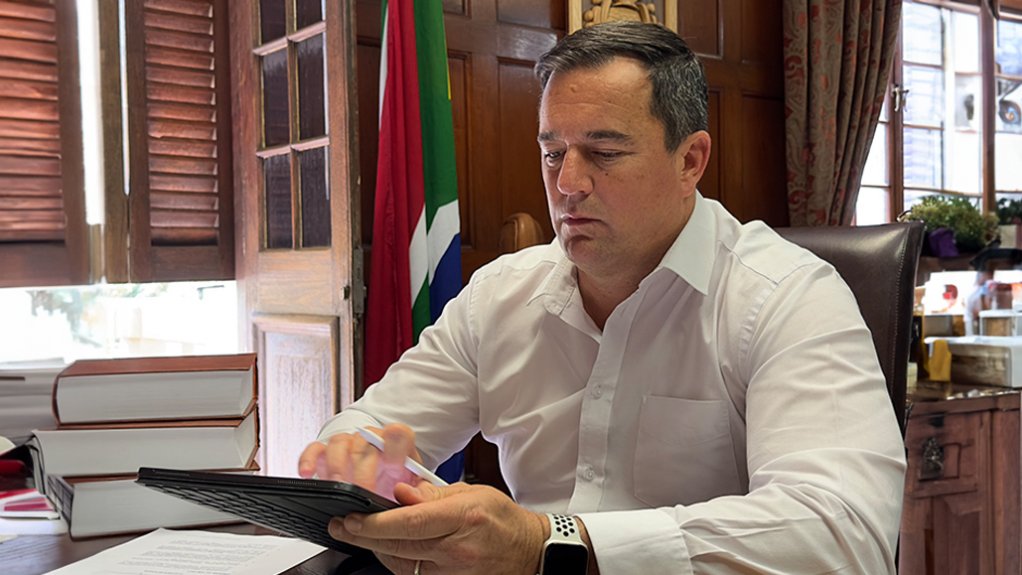The Mahlabatini plain is a wide and sweeping grassland plain in northern KwaZulu-Natal. It is rolling and magnificent in its ruggedness, populated by historic places and towns like Ulundi and Nongoma.
The hills, soils and rivers of the plain have for centuries borne silent witness to monumental bloody battles, the rise and fall of empires and the very struggle for survival of the Zulu nation. This mighty plain is also where the life story of Mangosuthu Buthelezi began and where, laid to rest at his beloved Phindangane, it ended.
Where does one even start to deal with such a long life? How does one choose which elements of a life so full and so richly lived to focus on?
Perhaps it is best to start in the beginning: born on the 27 August 1928 as a Zulu prince into a distinguished royal bloodline. Shenge attended university at Fort Hare where his political activism and awakening began, he was expelled from the university for participating in a student protest against the governor general.
In 1953 Shenge became the inkosi of the Buthelezi clan and a year later was installed by King Cyprian as the traditional prime minister to the Zulu nation, a role that he continued to fulfill for 69 years until his passing this year.
Prince Buthelezi served as chief minister of the KwaZulu-Natal government where he oversaw the building of hospitals and other infrastructure and also, secured the funding for the establishment of the Mangosuthu Technikon which operates to this day and which has been responsible for the education of thousands of young South Africans.
But the largest contribution he made to politics, the country and to this house was the establishment in 1975 of what ultimately would become known as the Inkatha Freedom Party. It was to this cause that he dedicated his life, turning the IFP into a formidable political force in KwaZulu-Natal and a national player in the political arena.
It was as the leader of the IFP that Shenge first took his seat as a member of this house in 1994. He was appointed as the Minister of Home affairs in the Government of National Unity, serving under both Presidents Mandela and Mbeki.
His television appearances, missives to the newspapers, formidable debating skills and keen love for history, particularly of his beloved Zulu nation, marked him out. His ability to recall the intricate details and dynamics of the famous battles fought by his ancestors against the British and the Boers made him a fascinating companion in any forum.
When the book closes on a persons life it is always tempting to cherry pick a certain chapter or paragraph and then use that to try and judge their full contribution. We have seen in the weeks following Shenge’s death attempts by critics and former opponents to do precisely that. I have always believed however that a longer view is required and that consideration of the full timeline of a persons life must be evaluated, particularly when it has been as full a life as that lived by Prince Buthelezi, failure to do so is the epitome of the term “ahistorical”.
The Democratic Alliance and its predecessors are proud of our long association with Prince Buthelezi. He enjoyed enduring and endearing friendships with the progressives Ray Swart and Harry Schwartz, a signatory to the Mahlabatini declaration. The warm friendships with leaders like Colin Eglin, Helen Suzman and Tony Leon led to many exchanges of letters and views about the state of the country and the fight for democracy.
Prince Buthelezi was a man of impeccable manners and great compassion, he was a friend of royalty, presidents and prime ministers, yet retained a humbleness that made him relatable to the man on the street. He cared deeply about the plight of his fellow man and dedicated his life to improving the lot of those who’s suffering he felt so deeply.
But he was also a man of deep faith who drew strongly on his Anglican faith during the numerous trials, tribulations and tragedies that characterised his public and private life. His faith was a great source of comfort to him during his times of loss when he lost the love of his life, Princess Irene in 2019.
In his later years, especially in this house, the Prince came to fulfil the role of an elder statesman. When the house would descend into chaos, he would always try to calm the waters, and even has his heath started to fail him, he would still participate in sittings, well into his sixth term, with his usual sage advice and wise words.
Today we say thank you for the life of Prince Mangosuthu Buthelezi. And on behalf of the Democratic Alliance we extend our deepest condolences to his family and friends, we pray for comfort and healing. Thank you for sharing him with the nation.
To his beloved Inkatha Freedom Party, we extend our sympathies on the passing of your President Emeritus. To the leader and members of the IFP, we hope that you will carry his memory as lodestar into the future that lies ahead. Bulawayo, may you continue to draw wisdom from his many lessons and inspirations.
I have no doubt that today those windswept grasslands of the Mahlabatini plains whisper his Isithakezelo: Shenge! in tribute to this great son of its soil.
I conclude fittingly with the words uttered by Horatio in Shakespeares Hamlet, a favourite of the Prince:
“Now cracks a noble heart. Good night, sweet prince, and flights of angels sing thee to thy rest”
EMAIL THIS ARTICLE SAVE THIS ARTICLE ARTICLE ENQUIRY
To subscribe email subscriptions@creamermedia.co.za or click here
To advertise email advertising@creamermedia.co.za or click here











